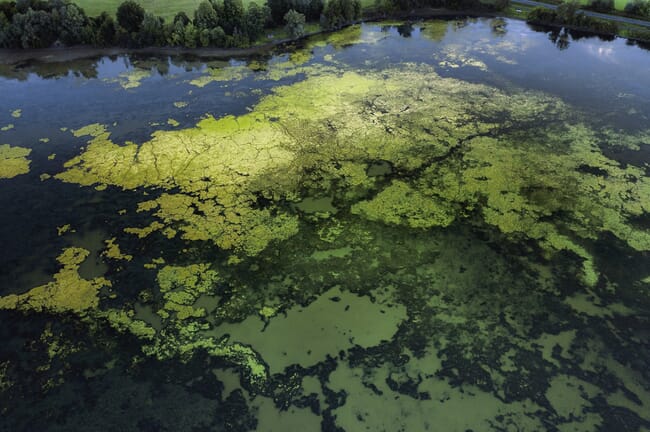
Researchers in Scotland are investigating the potential of converting sewage sludge into a mineral-rich material that could be used to treat water impacted by eutrophication and algal blooms - a phenomenon increasingly affecting lochs and rivers, associated with climate change and industrial fertiliser use. The occurrence of algal blooms can have devastating effects on aquaculture operations.
In a project funded by the Industrial Biotechnology Innovation Centre (IBioIC) and Scottish Water, a consortium of partners is assessing the viability of a water filter derived from biochar - a charcoal-like substance created when materials, in this case sewage sludge, are burned at high temperatures and deprived of oxygen. The raw material used to create the biochar is being supplied by Scottish Water, while its commercial subsidiary, Scottish Water Horizons, is testing the biochar at its Waste Water Development Centre in Bo’ness.
“This collaboration demonstrates how one type of waste can be used for the benefit of the natural environment, treating issues like algal blooms which are posing significant challenges as climate change continues and water temperatures rise,” said Dr Liz Fletcher, director of business engagement at IBioIC, in a press release.
“Although the creation of biochar is still in its infancy, we see huge potential for a growing market that could help several industries to reduce waste and adopt more circular processes,” she added.
Around 130,000 tonnes per year of human waste from the sewage system are disposed of in Scotland at an estimated cost of around £6 million, with the majority recycled to land or incinerated. However, potential changes to regulations mean that alternative treatment and processing methods must be explored. The potential use of the material to treat water could provide multi-faceted benefits.
Following tests using a variety of filtration systems, the research team found that the biochar-based filter was able to remove large amounts of phosphorus, a nutrient that contributes to algal blooms when present in excess quantities, from waste water. If used at scale as part of larger filtration systems, this kind of biochar could play an important role in treating water at the point of discharge to prevent algal blooms from forming.
The phosphorous collected by the filters could potentially then be recycled as a raw material.
“While phosphorus causes challenges for the environment and sectors such as aquaculture because of its impact on algal blooms, it is also an element that we all use in everyday products. Natural stores are depleting, so this circular bioprocess could lead to new opportunities to recover the nutrient from wastewater and create new supply chains here in Scotland,” said Dr Szabolcs Pap, a leading researcher on the project.




